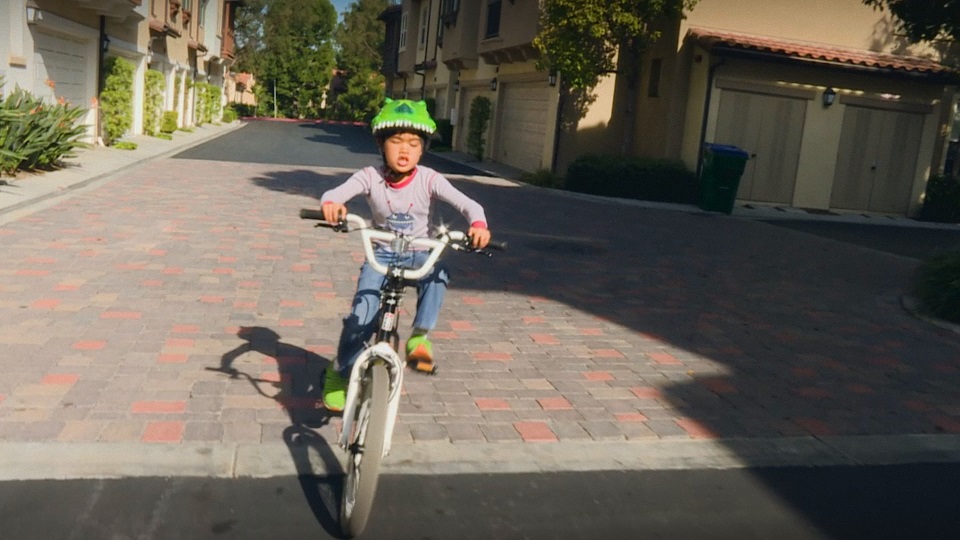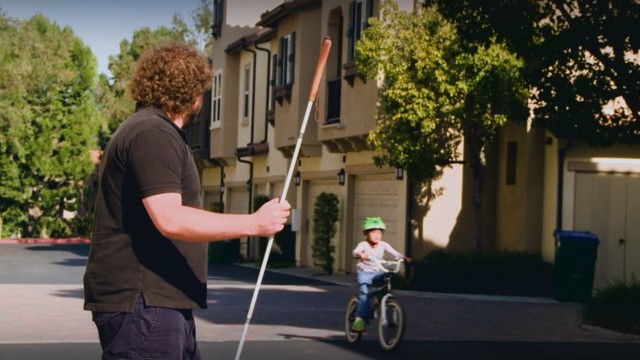“Echolocation” is a technique used by some blind people to navigate their world. The technique involves producing “clicking” noises with the tongue that bounce off objects in the environment and helps the visually-impaired create a mental image of where these objects are located. It’s the same “sonar” technique that is used in nature by bats, dolphins and porpoises to navigate a path.
A new study recently published in the journal Proceedings of the Royal Society B: Biological Sciences, found that blind people who have mastered echolocation can identify objects with a high rate of accuracy by listening for echoes of their mouth clicks and that they subconsciously make subtle changes to their clicking patterns depending on the object’s location. One of the key findings of the study was that expert echolocators instinctively increase the intensity and frequency of their clicks when an object is off to the side or behind them. Research has also shown that echolocation can provide very specific detail about the objects that the clicks echo off of – including shape, size, distance, and even the material the objects are made from.
The technique has not been well-studied and the insights of the new British study, which is the latest in a series of studies led by Dr. Lore Thaler at Durham University, can help refine methods for training visually-impaired people to use echolocation.
But the technique is not without its critics, who say that the clicking noise is distracting and can bring negative attention to a blind person in public. Daniel Kish, a co-author of the study and President of World Access For The Blind | Visioneers.org, considered to be the top echolocation experts in the world, says that’s a dated and “uninformed presumption.”
“This isn’t just about clicking, it’s more about us as blind people having the freedom of choice to conduct ourselves, to learn, achieve, and contribute as equal citizens,” Kish said. “The skills we teach through ‘visioneering’ help all of us to achieve that freedom in a self-directed way.”
Full Frame’s Sandra Hughes spent the day with Brian Bushway, a perceptual navigation instructor with World Access for the Blind, and his young echolocation trainee as they “sonified” the world around them.

 CGTN America
CGTN America
